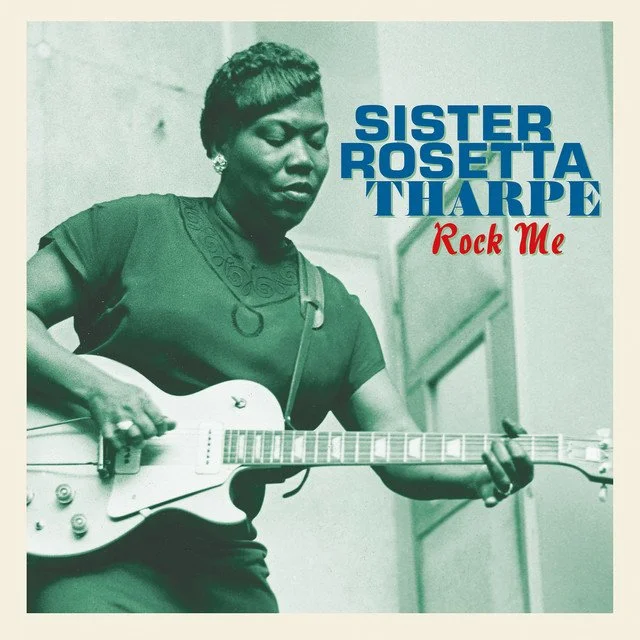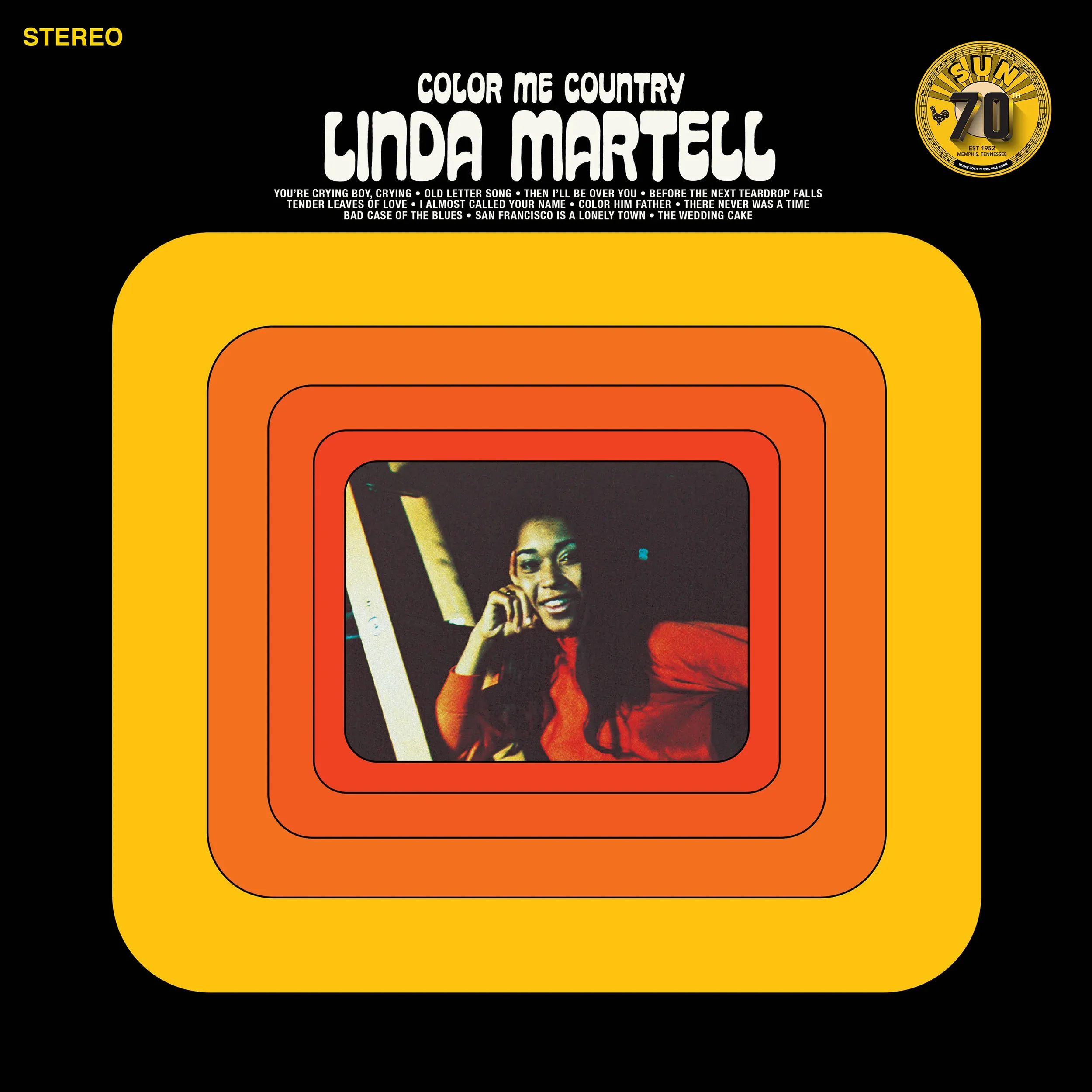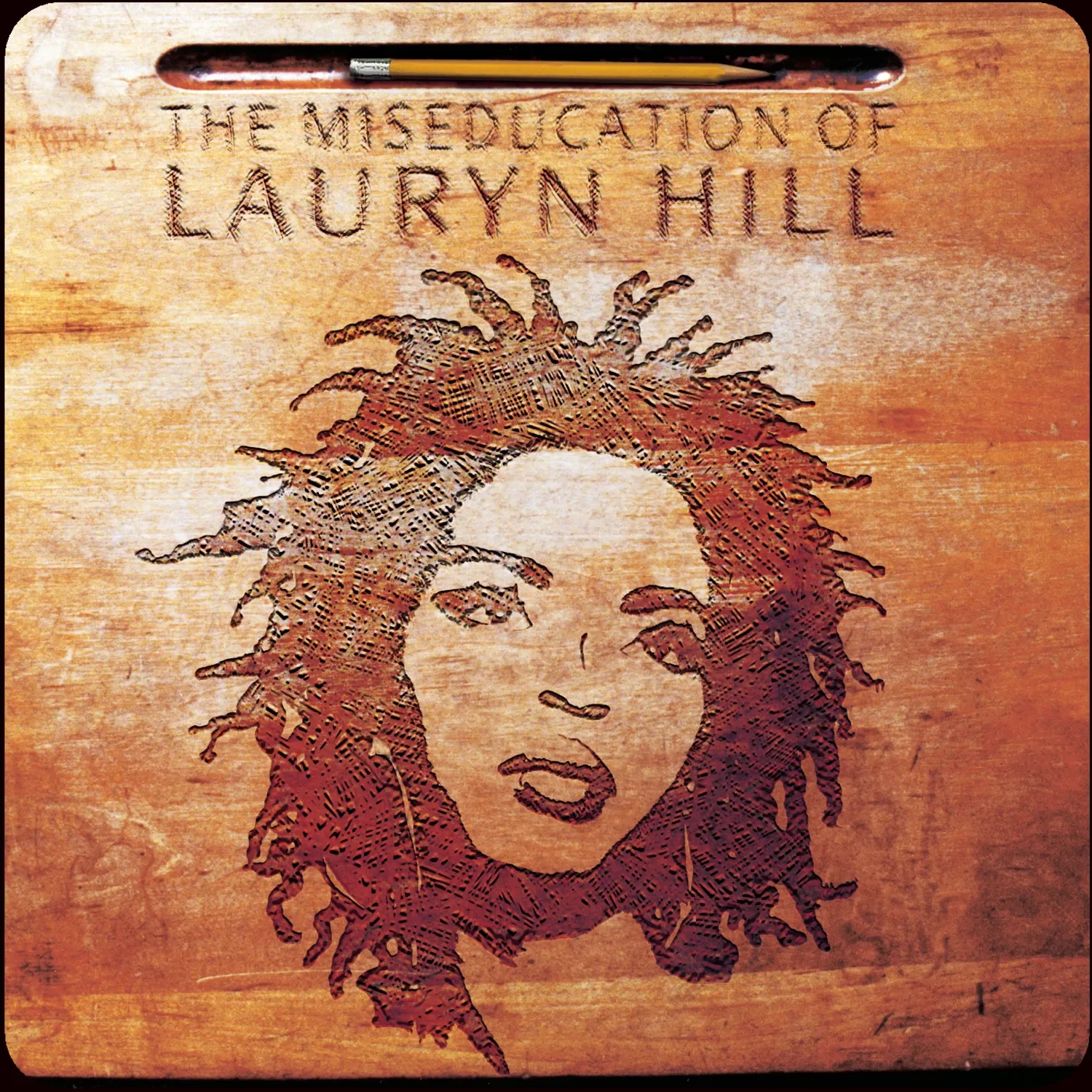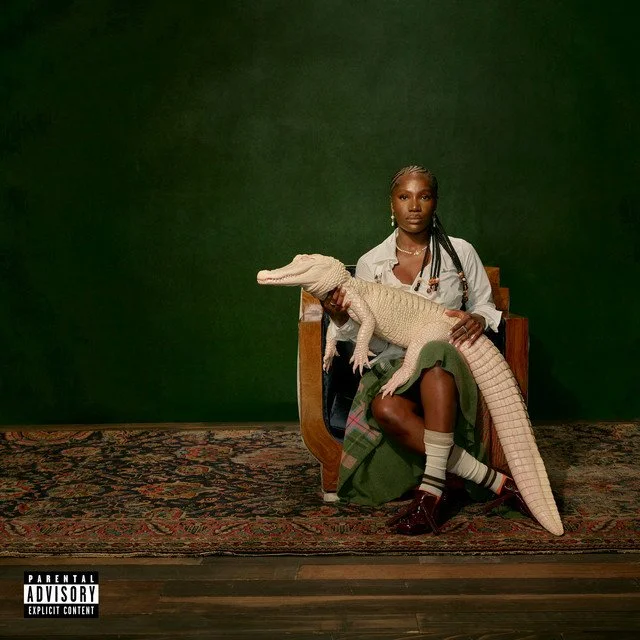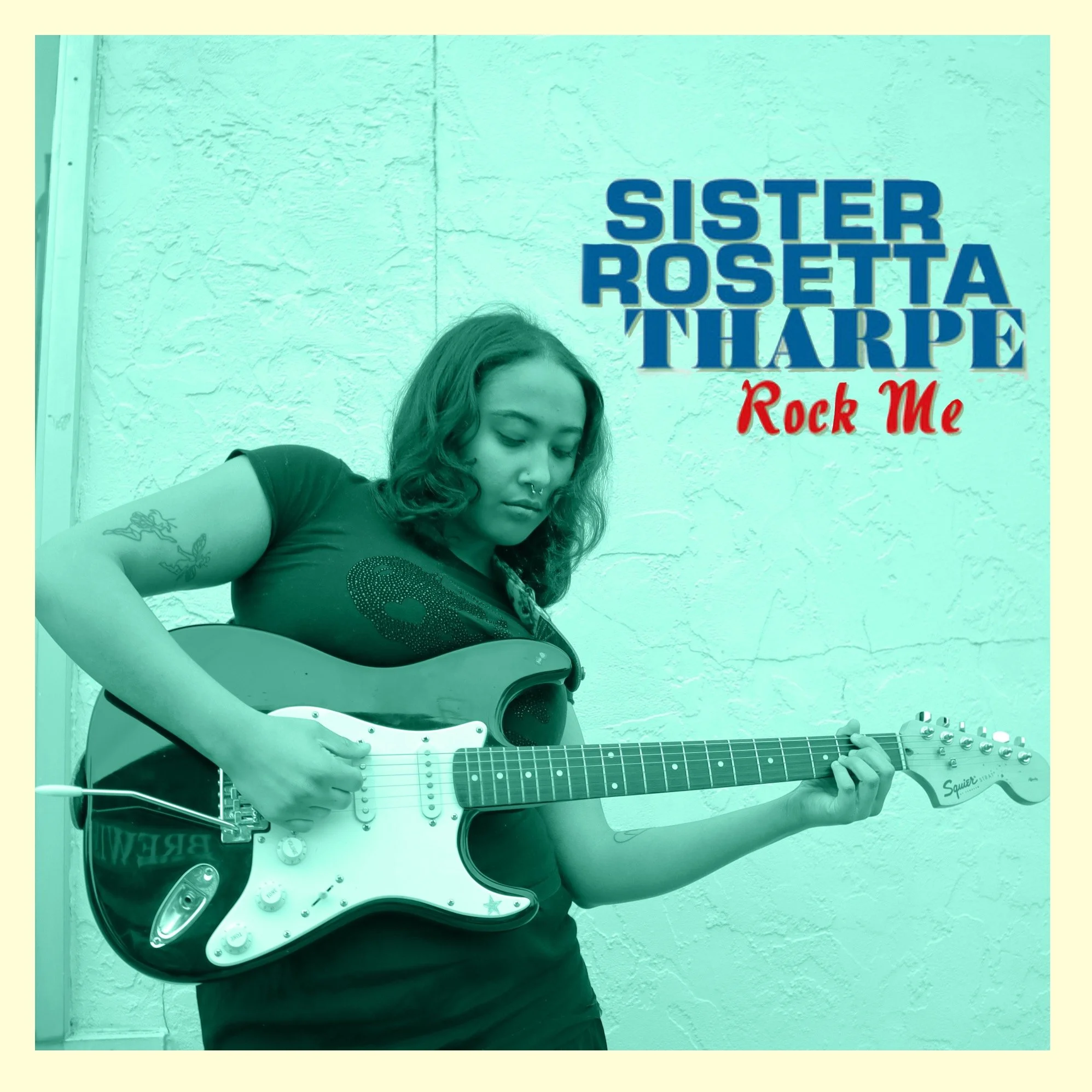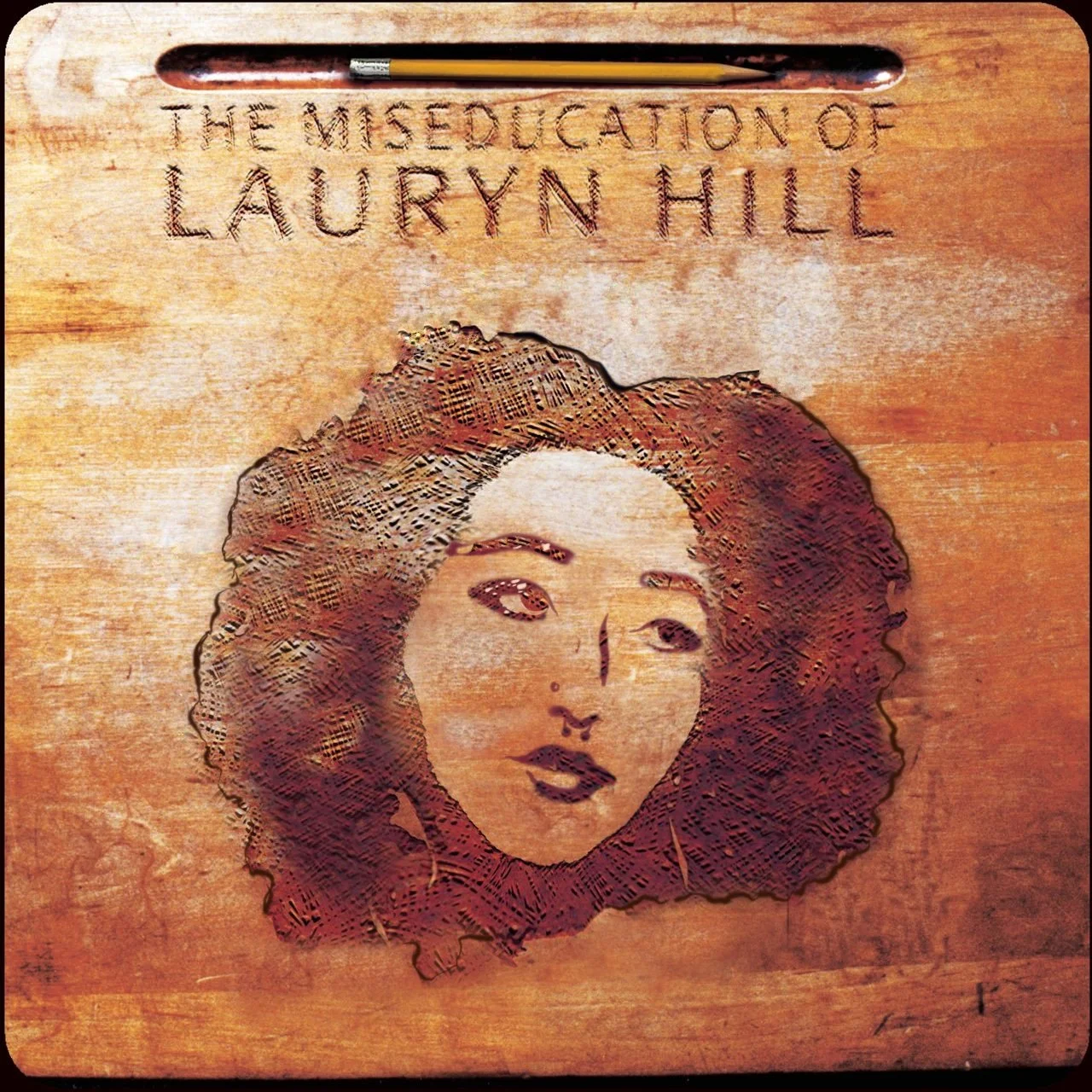How Black Women Shape Culture Through Music
Written by: Reese Tackett
Photographed by: Rishita Nannapaneni
Modeled and Edited by: Alexis Loftis
Graphics by: Cole Vest
In the music industry, women are pioneers, constantly reshaping pop culture through their boundless creativity. Black women specifically have made major contributions to the music industry, even though they are historically marginalized, mistreated, and exploited in their craft. So many albums released by Black women have changed and shifted culture as a whole. In this read, we’ll be analyzing the legacies of Sister Rosetta Tharpe, Linda Martell, Tina Turner, Lauryn Hill, SZA, and Doechii. Their albums have shaped and defined culture in a plethora of ways, including breaking down gender, sexuality, and racial barriers in music and society.
Sister Rosetta Tharpe - “Rock Me”
This story begins with the birth of Sister Rosetta Tharpe, aka the godmother of rock n’ roll, in 1915. Tharpe first started playing guitar at four years old and by the time she was six, went on the road to perform in a troupe, her mother Katie Bell accompanied her on the road. The evangelist troupe traveled to churches in the South. Tharpe’s mother moved them to Chicago in the mid 1920’s where she continued to play music. At the age of 23, Tharpe produced her first single, “Rock Me” in 1938.
Tharpe took influence from gospel music, New Orleans jazz, and Delta blues, creating something new and different all together. Tharpe is credited for creating some of the first rock music, but unfortunately, a lot of people still associate White artists such as Elvis Presley for laying the framework for rock n’ roll.
Tharpe went on to play with Duke Ellington, Dixie Hummingbirds, and many other icons. However, since all hotels and restaurants were still segregated, Tharpe was forced to sleep in buses and go to the back of restaurants to get food since they wouldn’t let her inside during her tour. Even though racism was rampant, Tharpe never wavered in her passions and pursuit of living authentically. In the late 1940’s, she met Marie Knight, her partner whom she’d be with until 1950. These two queer Black women went out on tour, performed, and made music together. They carved out a path for future queer artists to not be afraid of their identity, even in the face of hate.
Linda Martell - “Color Me Country”
In August 1969, Linda Martell performed at the Grand Ole Opry in Nashville, being the first Black woman to do so. This was only a week after her rendition of the single “Color Him Father” was released and entered the Top Country Charts at No. 22. She then released her first and only album, “Color Me Country,” in 1970. Martell was the first Black woman to see commercial success in the country music industry. Martell faced massive amounts of racism at shows, including racial slurs. She was ultimately pushed out of the music industry and was blacklisted due to the industry’s racist favoring of white singers.
Martell went on to perform at small venues, on cruise ships, and even ran a record store at one point. She also worked alongside teachers as an aid to disabled students, as well as being a school bus driver. In 2024, Beyoncé featured Martell on her album “Cowboy Carter.” Beyoncé’s single “Texas Hold ‘Em” was No. 1 on the Billboard country chart in 2024. Before this, Martell was the only Black woman with a top rated country hit. Linda Martell’s story is a stark reminder to always amplify marginalized voices. Just because there aren’t artists of color in the top charts doesn’t mean they aren’t out there making something beautiful.
Tina Turner - “Private Dancer”
There are few artists that can do it like Tina Turner, aka “the Queen of rock n’ roll.” Turner performed for a little over 50 years of her life on stage from 1956 to her last performance in 2009. This is a testament to the passion Turner had for music, the love she had for people and performing. Watching Turner perform is moving; the way she could unite the crowd and everyone on stage with a feeling of happiness is remarkable. Not many artists can control such large crowds with that much ease — her performance of “The Best” in 1990 in Barcelona is particularly moving.
In 1984, Tina Turner released “Private Dancer,” her first solo album after leaving her husband Ike Turner, who was physically abusive and an adulterer. Saying “Private Dancer” was a major hit is an understatement — it sold 20 million copies worldwide and won three Grammy Awards. The single, “What's Love Got To Do With It” from the album stayed on the Billboard charts for 28 weeks, which is only one of her six songs to hit top 10 of the Billboard hot 100 in her solo career alone. “Private Dancer” led to Turner embarking on her solo career, which would lead to many more albums, acting roles, and writing several books. Tina Turner’s incredible legacy has and will continue to influence current and future artists for generations to come.
Lauryn Hill - “The Miseducation of Lauryn Hill”
In 1998, Lauryn Hill released her debut solo album, “The Miseducation of Lauryn Hill,” following the disbandment of the Fugees in 1997. Hill was the first hip hop artist to win album of the year at the 1998 Grammys. That night she was also the first woman to take home five Grammys and to win best R&B album. Her rightful domination of the Grammys opened the world up to hip-hop and R&B like never before. “Miseducation” also made Hill the first woman rapper to have a number one spot on the Billboard 200. The album also went three-times platinum just three months after it was released. It’s safe to say “The Miseducation of Lauryn Hill” is one of the most influential albums of all time, constantly taking a place in ‘best album’ lists across genres.
“Miseducation” follows no rules as Hill takes on many experimental sounds – from incorporating Carlos Santana’s guitar skills on “To Zion,” harpsichord on “Superstar” (which we frankly need more of), and the funky plucky bass on “Every Ghetto, Every City.”
Throughout the album, Hill explores a vast variety of topics in life including love, social unrest, pregnancy, family, self-exploration and more. In the span of a little over an hour we get a glimpse into the life and philosophy of Hill in a vulnerable, unique, and touching way. Hill’s rapping and singing style of vocals laid the groundwork for many future artists to make music in that style such as SZA, Doechii, and Summer Walker.
SZA - “Ctrl”
The summer air of 2017 was different, and it was SZA's debut album "Ctrl" floating around. With everyone playing the album on repeat, we joined SZA on a journey as she bears her heart to us." SZA released her debut album “Ctrl,” effectively taking the music industry by storm. Every track is raw, unfiltered, and honest in its own unique way. “Ctrl” is focused around sexual liberation and the mess that is life with songs like “Drew Barrymore” and “Broken Clocks.” SZA created an album that celebrates Black women. This is evident throughout the album, but specifically on “Normal Girl.” SZA sings about how she wishes she was a “normal girl,” but an unattainable image fabricated by the media makes this impossible for her. “Normal Girl” is about being yourself, embracing who you are, and defying stereotypes.
“Ctrl” went two-times platinum and resulted in SZA receiving five Grammy nominations in 2018. This debut album is the perfect album to throw on if you’re feeling stressed out about being a “20 Something” year old — trying to figure it out. “Ctrl” still contributes to culture as the songs off the album are just as refreshing and exciting as the first listen. SZA created a space with “Ctrl” for Black women to express the parts of themselves society tells them to stifle, take up space, speak your mind, be messy, be sexual, and always do it proudly.
Doechii - “Alligator Bites Never Heal”
Doechii’s 2024 mixtape “Alligator Bites Never Heal” is proof that as a creative, you have to do what you want, not what people want you to do. Some of the album’s songs follow a typical song structure, but most do not – sometimes not even including a chorus. It was important Doechii made her album her way, and it paid off. Doechii recently won the Grammy for best rap album in 2025, being only the third woman to do so, following Lauryn Hill and Cardi B. It is a complete misrepresentation of women in rap to have only three women win this category over the past 30 years.
In Doechii’s music video for “Denial is a River” is stylized as a sitcom and takes us on a visual and auditory journey. The song itself has its own fictional universe surrounding it, with four other short videos creating a storyline around the song before releasing the “Denial is a River” video. The series featured artists such as Baby Tate, Zack Fox, and Schoolboy Q. The videos include laugh tracks and even a theme song — if Doechii turned the “Denial is a River Show” into a 20 minute TV series, I would be floored. Doechii’s talent cannot be contained to one facet of creation; she is a musician, a comedian, an artist, and so much more. Doechii is raw, honest, funny, and lyrically remarkable. I, among so many others, are eagerly looking forward to whatever art she puts into the world.
I only had the opportunity to write about six artists, but if I wrote about every Black woman that makes amazing music, I’d never stop writing. The reality is that Black women are the forebears of music, the creators of culture. Donna Summer is known as the “Queen of Disco” and credited as the beginning of electronic style music. Ella Fitzgerald is regarded as “The First Lady of Song” and remains one of the most influential jazz singers of all time. Whitney Houston is the most awarded female artist of all time having 11 No. 1 hit singles, six Grammys, two Emmys, and 22 American Music awards — a small chunk of her 415 award wins. Almost every genre can be linked back to Black women’s creativity and artistic visions being the catalyst for the culture.

